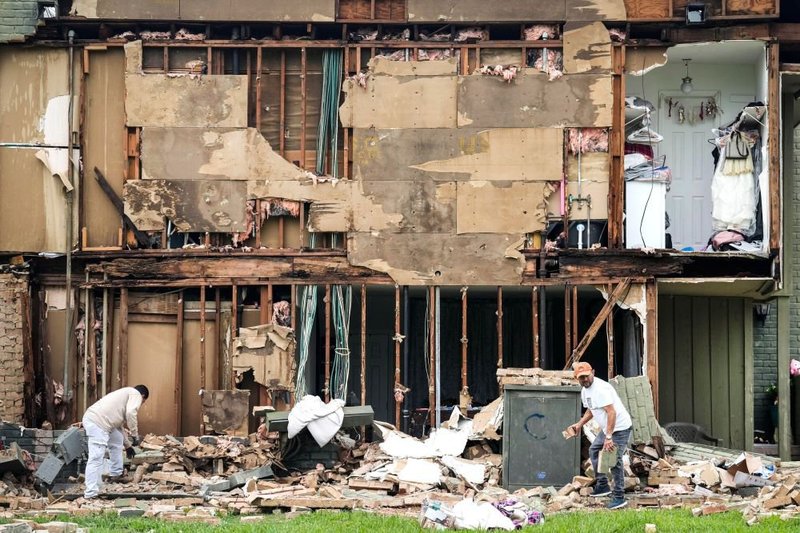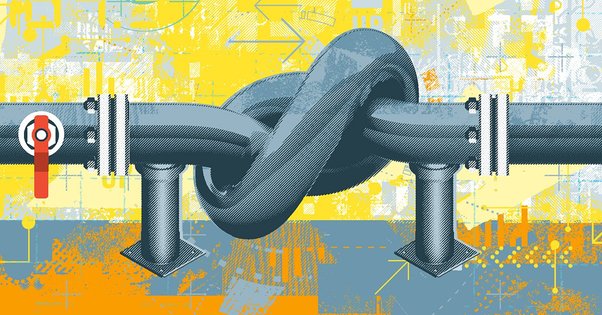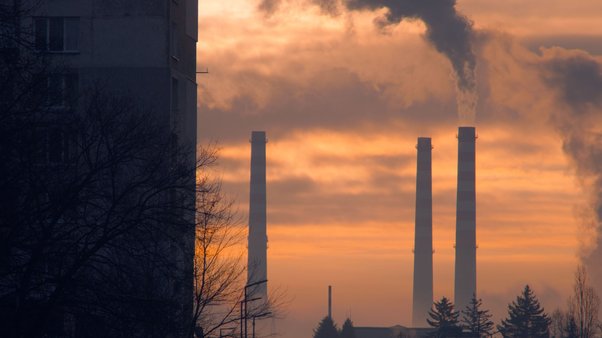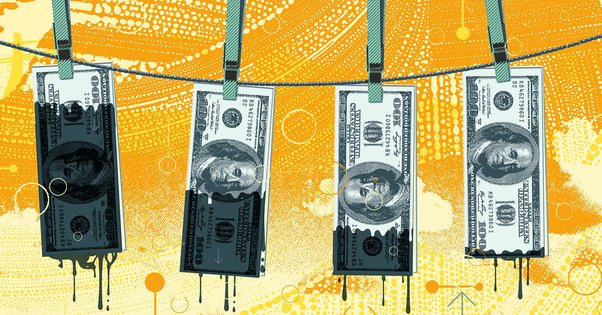Damages from a single storm in Houston could amount to more than $5 billion. Should fossil fuel companies foot the bill?

At least eight people died, and a million lost power, when a severe storm hit Houston on 16 May. A week later, some 27,000 Texans still lacked electricity – a dangerous situation as the heat index exceeded 100°F (37.8°C). Adding insult to injury, the derecho left standing water that led to an explosion of mosquitoes, with at least one found to be carrying West Nile virus.
The storm took residents by surprise: instead of the forecast rain, the Houston area was pummeled by winds of up to 100 miles per hour and a tornado. Experts say the climate crisis is making storms like this worse and that they are proving even stronger than models predicted.
Initial estimates peg this single storm’s damage at more than $5 billion. Who should pay?
We already know who will foot some of the bill: the American public. Tens of thousands of people have already applied for emergency aid from FEMA, the Federal Emergency Management Agency. A local utility said it expected to recover $100 million in rebuilding costs from its customers. Insurance companies are also looking at staggering payouts, in what will likely become another example of climate-fueled disasters driving insurance rates to unaffordable heights.
Meanwhile, the industry responsible for the climate crisis, which walked away with over $100 billion in profits last year, will get off scot-free – unless governments do something about it.
The Houston area happens to be the global and US headquarters for some of the world’s most polluting fossil fuel companies and enablers: Exxon, Shell and BP among them. The American Petroleum Institute (API), an industry group, has a Houston office as well.
Some industry buildings were damaged in the storm: the TotalEnergies and Chevron office towers in Houston suffered windows blown out, and minor damage to area oil refineries was reported. But this pales in comparison to the widespread destruction across the region, where power outages were so dramatic they were easily seen from space.
Videos of the destruction are disturbing to watch. As the supercharged storm winds funneled between skyscrapers, they ripped pieces off cars and hurled debris into the air. A week later, downtown streets were still blocked off as broken glass continued to fall from buildings.

This was not even a hurricane-level event. The National Oceanic and Atmospheric Administration has now forecast an exceptionally dangerous hurricane season, predicting as many as seven major hurricanes. Since 1980, hurricanes have cost the US an average of $22.8 billion each, but this number hides dramatic variation. Katrina, the most expensive to date, killed an estimated 1,392 people and cost $190 billion in inflation-adjusted numbers.
Ordinary Americans do not have the means to rebuild and repair out of pocket after climate disasters, and that goes double for Houston. Nearly a fifth of residents live in poverty – almost twice the national average. At the same time, the Houston area is one of the most ethnically diverse regions in the US.
That makes storms like the May derecho not just a climate story, but a life-and-death issue of racial and socioeconomic equity. We know that the climate crisis is already hitting harder in communities of color and poorer communities. And scenes like Houston’s will only become more common, unless and until the fossil industry is forced to decarbonize. It should also be made to pay for the loss and damage that can be attributed to the climate crisis.
Calls for the fossil industry to pay for climate pollution are becoming more common.
“Polluters must pay,” UN Secretary General Antonio Guterres said in 2022, calling for fossil companies to be taxed to pay for the loss and damage ensuing from the climate crisis.
A recent peer-reviewed study estimated that climate harm to GDP will cost some $99 trillion by 2050, most of this directly due to the burning of fossil fuels. The authors argued that companies should be held accountable for trillions in damages, making allowances for those in developing countries.
American “polluter pays” laws have been applied to fund the cleanup of toxic waste and, most recently, forever chemicals. Several US states are currently considering similar measures to force fossil fuel companies to pay for climate damages. Vermont’s Climate Superfund Act is the most advanced of these efforts. If made law, the bill would mandate companies like Exxon to pay a share of the costs of extreme weather damage in the state.
Polluters must pay
The fossil industry will fight such laws with everything it has, no doubt seeking to pass the blame for climate disasters to the public – despite its own decades of misinformation, delay and denial. Exxon’s CEO Darren Woods did just that this March when he suggested that people were simply too cheap to pay for low-carbon fuels, saying: “We have opportunities to make fuels with lower carbon in it, but people aren’t willing to spend the money to do that.”
Two-thirds of Texans also believe that corporations should do more to address global warming, according to polling by the Yale Program on Climate Change Communication.
Still, the Lone Star State is unlikely to follow Vermont’s lead soon. Three-term Governor Greg Abbott (R) took over $7 million in donations from oil and gas companies in 2022 alone, OpenSecrets data show. At the same time, he has lobbied for tens of billions in federal money to protect Texas from sea level rise, indicating that he evidently thinks the public, and not fossil fuel companies, should be on the hook for climate bills.
Global Witness asked Governor Abbott’s office if he thought fossil companies should pay to clean up climate damage. His spokespeople did not respond. Global Witness also contacted Exxon, Shell, BP, Chevron, TotalEnergies, and the API to ask whether they would contribute to the costs of rebuilding Houston. Shell declined to comment. The other companies did not respond.
Nothing will bring back the people lost in climate disasters, but the industry responsible can and should be held responsible for helping to prevent future catastrophes – and cleaning up the current ones.


